How will COVID-19 impact Singapore’s property market and will it affect the property price.
Singapore’s residential property prices are set to tumble as a result of the COVID-19 pandemic. According to some analyst, prices are expected to correct by as much as 8 per cent this year, because of weak demand and a poor economic outlook.
Prices could go lower if this coronavirus triggered economic slump worsens further, with more job uncertainties or another extension of the circuit breaker.
Private home prices have already fallen, but industry players and experts believe that demand is now slightly muted until the end of the Covid-19 pandemic, and it will recover once normalcy is restored.
On April 24, Urban Redevelopment Authority (URA) release results for first quarter 2020 (before circuit breaker measures were imposed), it showed that private residential prices dropped 1 per cent from the previous quarter.
Year on year, private residential prices are still up 2.4 per cent against last year March 2019.
This is the first reversal or downturn after three consecutive quarters of price increase, and we expect to see prices trending lower as Singapore heads into a recession caused by this pandemic.
Developers sold lesser units, 32.4% lower than in 976 in February. Or about 660 homes, excluding executive condominiums.
According to a report by Knight Frank, there were 1,081 home sales in March, that is 33% down from March 2019. Especially for high end properties, or those in the range of S$3,000 per sq ft or more, there were only 11 sales, down from 53 a year before.
Most of these high end properties are purchased by foreign buyers. Buyers from mainland China and Indonesia are crucial to Singapore’s top-end property market. Usually these buyers will fly in with families to take a look at the area and the buildings before purchase. But with the current travel ban in circuit breaker period, they were not able to come to view.

We expect new sales volume to be worse off in April 2020 with circuit breaker measures eg. show flats closed and viewings postponed. And amid this situation, many buyer have become more cautious , more price sensitive and will only be opportunistic only when good deal arrive.
But once Circuit Breaker is over , and the situation stabilises, new homes sales will likely pick up when show flats reopen and house viewings can resume.
Will COVID-19 cause our property market to collapse, as it did in the financial crisis in 2008?
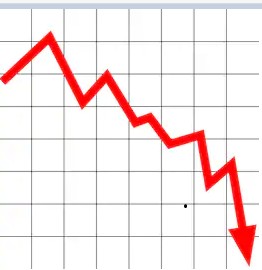
Recessions usually have only a minor effect on the housing market, the main factors driving demand to property market is whether the inventory is low or is mortgage rates low, ultimately it is demand that sets prices. The COVID-19 effect is only making life and markets not normal.
Home sales dropped dramatically during an outbreak, home prices stayed about the same or suffered a slight decrease. Because it’s harder for prices to change when there are only a few transactions.
This COVID-19 pandemic and the impending recession have caused many homebuyers to tighten their budgets, or delay their purchases. Also the drop in foreign buyers, especially from China and Indonesian, these foreign buyers constitute 20 per cent share of non-landed private properties purchases last year.
In the study of past pandemics eg. SARS, it has shown that it only put the housing market on a pause mode. Home prices don’t fall that much, but COVID-19 may be different because of its wide economic fallout cause to the GLOBAL economy.
There are some fundamental differences between what happened in Sars and now with COVID-19.
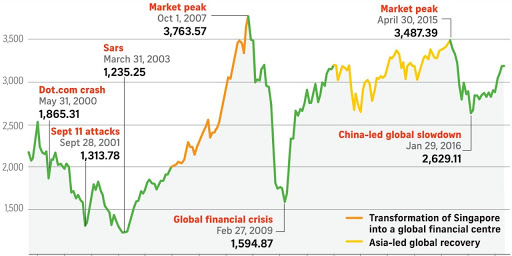
- First, prices before SARS was at a high base.
- Before SARS outbreak there was a lot more debt in the market, thus causing fire sales during outbreak.
- COVID-19 is global. Means more affecting elements to consider.
Lets look at how COVID-19 affects our market here.
1. Viewing are almost impossible to conduct so it leads to a slowdown in sales.
As most agents are using technology or digital platform such as Matterport to conduct virtual viewing, it may not be as convincing as realtime showroom previews. But such virtual viewings do get buyers to get hooked onto a property and it may help them make fast decisions once circuit breaker measures are lifted and they can inspect unit in person.
2. Valuations of property is difficult to get
All resale property need a valuation report to secure loans. Especially older properties need new valuation reports as most of the pre-existing valuations are dated. Loan quantum or 75% of asking price, is pegged to the valuation of the old property, and without it, banks can’t work out how much they can lend you.
For new condo developments (that includes BTO flats bought directly from HDB), the banks will generally accept the developer’s price as fair value. So no valuation report is needed.
3. No foreigners due to Travel ban in circuit breaker
As mentioned, high end properties are very dependent on foreign buyers, especially Chinese buyers. The travel bans are just getting in the way, and preventing them from coming to Singapore.
4. Banks might lower the loan quantum if worse continues.
Singapore has already implemented in the cooling measures many restrictions on loan and affordability, eg. LTV, TDSR. to prevent overleveraging.
Our loan-to-value (LTV) ratios is now capped at 75% for first property loan, and lower at 55% if there are existing outstanding home loans.
Total Debt Servicing Ratio (TDSR), has kept total loan repayments to below 60% of borrower’s income thus ensuring that buyers are prudent in their finance planning when making property purchase.

5. Buyers pull out of deal at the last minute as they fear commitment to a mortgage.
No proof this is happening yet, because there is no proper records of why buyer pull out. (could be other reasons). So we cannot say buyers back out because of COVID-19.
Most likely case for backout now especially for upgraders is that they fear retrenchment or loss of job or they are put on NO PAY leave.
6. A Stop in the construction of new properties
COVID-19 and the circuit breaker has put a stop to all construction activities. Also, many construction projects are facing supply shocks, eg. Prefab material are now not able to come in from Johor Baru.
Labour shortage is another factor, as many workers , especially Chinese were previously not allowed back in Singapore because of COVID-19 in China. And now with the high number of infections amongst foreign workers staying in dormitories, this will affect the supply when circuit breaker is over.
So far, these factors have not pulled down the property market in Singapore, only dampening and restricting its progress.
Government’s Help to the Property Market
The Singapore Government has rolled out 3 supplementary budgets to ease the effects of COVID 19. Among them these are the measures that will help the property market
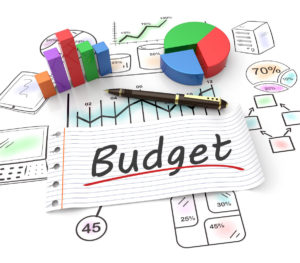
- Defer Repayment of Residential Property Loans – To cope with mortgage repayments timeline, Individuals can apply for deferment of property loans for either (i) principal repayment or (ii) both principal and interest repayments up to 31 December 2020. Interest will accrue on the outstanding loan principal. But If interest payments are also deferred, then no additional interest will be charged on the deferred interest payments.
- Borrowers can refinance without TDSR – Borrowers who want to refinance their loans for owner-occupied residential properties are not subject to TDSR and LTV limits. This will help borrowers with fixed rate mortgage packages that are out of the lock-in period who want to refinance their loans to obtain a lower interest rate.
- Property Tax Rebates for Non-Residential Properties.- This rebate is intended to help businesses deal with the impact from COVID-19. All qualifying non-residential properties (“qualifying properties”) will be granted property tax rebate for the period of 1 Jan 2020 to 31 Dec 2020. And all property owners have to pass on to their tenants the full amount of property tax rebate received for each property tax account
- Disposal of first property is extended by 6 months – Singaporean Married couples is now given one year lead time to sell their first matrimonial home to qualify for remission of additional buyer’s stamp duty (ABSD) for their second property
- To Help with rental costs, the government will increase rental waiver for industrial, office and agricultural tenants of government agencies to 1 month.
As Singapore interest rates are track to US interest rates, all property owners are enjoying the lower SIBOR rates here, many are either re-financing their homes or using this low rates for investment.
On top of that we are aware that US has started QE4, this mass printing of money devalues the US dollar and bring along low interest rates.
DEVELOPERS’ ACTION
It was reported in the newspaper recently that half of developers likely to cut prices. Because sentiments have dived, these developers are likely to lower the selling prices of their next new launch.
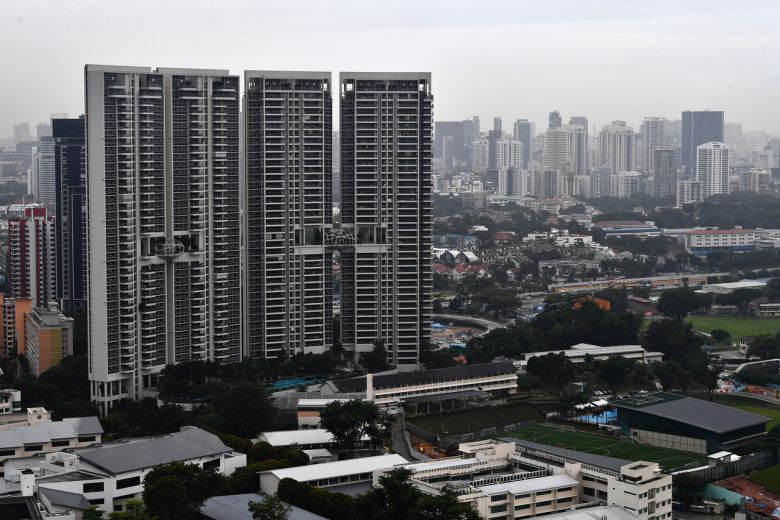
Rental market is also badly affected, with many anticipating that the occupancy rate to decline by 2 to 5 per cent.
Developers will also either extend project completion time or postpone new launches to reduce the impact.
In fact they are now petitioning to the authorities to ease the curbs.
With constructions taking 3-4 years to complete, all the enbloc of 2017/2018 and GLS supply will see completions only in 2022-2023. And most developers have up to 2022 to 2023 to completely sell out their projects, that means another 2 – 3 years of time.
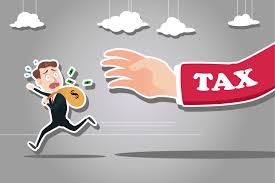
There were also multiple calls by developers to ease the 5 years ABSD remission timeline for building and selling projects which otherwise would see them slapped with additional costs for their developments thus increasing their costs.
We also can expect to see some developers (especially those who have not accumulated much land bank in 2017/18) to start their land banking initiatives between 2021-2022 ?
If that is true, then we can foretell it might be the next enbloc wave.
FUTURE RECOVERY
This are the likely scenarios that could unfold in this COVID situation
1) Best case: V-shaped recovery
Covid-19 is controlled within the next 2 to 3 months with low new cases in Singapore and worldwide. If this scenario happens we anticipate that investors and home-buyers will resume their property hunting activity in Singapore
2) Worst case: U-shaped recovery
If Covid-19 lingers on for an extended long term, and WHO didn’t reduce the pandemic status. It could pose many problems starting with prolong disruptions in production and logistics supply chains, stopping the construction of property.
Manufacturing activity if stopped for too long will in turn disrupt supply chain.
All these industries, Manufacturing, Tourism, Retail, has an impact on economy which in turns affect the demand for industrial & commercial property space.
Private residential sales performance will also suffer with poor economic outlook.
Property sector will also influence other areas, eg. The financial sector, which does primarily mortgages and insurance, as well as other professions like lawyers, surveryors, valuers, etc
Singapore has become limelight after this COVID-19 experience, this will attract many to consider staying in Singapore. Many High-net-worth individuals from around the world may consider to invest here or migrate here once the storm is over.
A report by by Morgan Stanley Research shows that HDB upgraders form 46% of private home sales.
According to a report by DBS bank, it was reported that there will be about 20,000 HDB units that will attained their minimum occupation period (MOP) in year 2020.
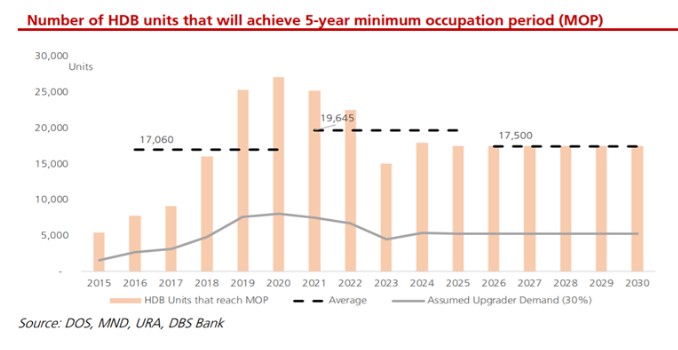
We can expect to have 17,000 to 19,000 units of flats to reach MOP annually over the next 10 years.
This group of owners who attained MOP might upgrade to a condo, which means this group will soak up alot of private property supply.
We hope with this new demand it will assist the recovery of the property market.
CONCLUSION :
Covid 19 has been slowing the property market currently, and many agents and developers have turn to digital and online marketing channels for now.
These strategies are more effective to reach out to mass audience in the mass-market segment, but for high end markets, on-site showflat experience and dedicated face-to-face consultation are still the most effective means.
Year 2020 could therefore be an opportunity for property developers, landlords, retailers, office occupiers and industrialists to change from their usual ways of doing business and to revamp and enhance their operations in future for long-term growth.
China has open up eversince the lockdown is over, and property sales is very encouraging. The Residential home prices in China rose in March as pent-up demand after a period of lockdown. New-home prices in 70 major cities gained 0.13 per cent in March from February. Whether this slight home-price growth in March is a precursor to a full rebound or not remains to be seen.
The country’s major developers have achieved better-than-expected online transactions by offering price discounts of between 5 per cent and 10 per cent
In Singapore, last year there are more auction listings. But there are fewer transactions. Auction success rate drops despite increase in mortgagee sale listings, the auction success rate declined to 1.6% in 2019 from 3.8% in 2018.
This means fewer fire sales
For Investors who are looking for fire sales during this COVID-19 period will be disappointed, because prices are unlikely to crash the way they did in last recession after the global financial crisis in 2009.
This is because right now there is no oversupply issues and not much debt in the market.
If you want to know more about this current market and how you can capitalise on it, do click below to fix an e-appointment to discuss this in detail over ZOOM. I look forward to your appointment date.
Schedule time with meArticle contributed by Rick Fok
Rick Fok is a realtor with OrangeTee & Tie Pte Ltd. He has been in this real estate business for 10 years. He is very focus in helping his clients rent properties and he does help many customers to buy new projects according to their needs. His interest include sports such as running and soccer besides just real estate work. He loves to connect with people to discuss properties related issues and gets enormous satisfaction in helping them fulfill their needs.
If you have any queries on this topic or other , please do give Rick a call and we can discuss this over a cup of coffee.

Other Articles to read
Which is better? To engage an Exclusive agent or Multiple agents?
How much does it cost to upgrade from HDB to condo?
When should I sell my Executive Condo?
Is it better to buy an EC than a condo ?
Buying a new launch or a resale property. Which is a better property for investment?
Do you keep or sell your HDB , when you upgrade to a condominium.